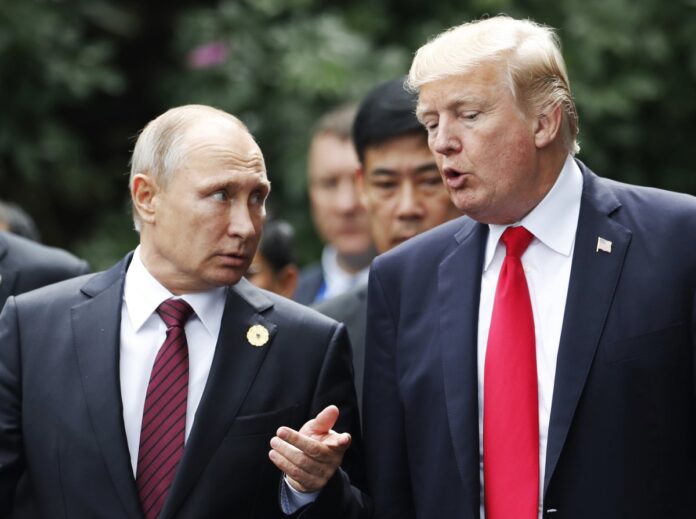The Kremlin has firmly denied recent reports suggesting that U.S. President-elect Donald Trump held a conversation with Russian President Vladimir Putin in the last few days. Kremlin spokesperson Dmitry Peskov, addressing the media on Monday, called the reports “pure fiction” and “completely untrue.” Peskov added that there are no current plans for a conversation between Putin and Trump.
The claims about the supposed Trump-Putin call were first reported by The Washington Post and subsequently by Reuters, both citing unnamed sources. According to these reports, Trump allegedly advised Putin not to escalate the ongoing conflict in Ukraine. However, Peskov was quick to refute these statements, asserting, “There was no conversation.” He also pointed to the situation as an example of declining journalistic standards, noting, “This is the most obvious example of the quality of information that is being published now, even in fairly reputable publications.”
Peskov further stated that there are no specific or concrete plans for future talks between the two leaders. He emphasized that the information circulating about such a call is not based on any factual events.
The ongoing conflict in Ukraine, which has lasted for over two and a half years, appears to be entering a critical phase. Recent advancements by Russian forces have raised concerns about how the war might end, with officials suggesting that this could be the most dangerous period since the conflict began. Russia has been making steady advances, the fastest pace since the early weeks of the conflict, as the West debates its stance and involvement in the future of the war.
Donald Trump, during his election campaign, asserted that he could bring peace to Ukraine within 24 hours if elected. However, he provided few specific details about his approach to ending the conflict, which is the largest ground war in Europe since World War Two. Meanwhile, Putin congratulated Trump last week, praising his courage in facing an attempted assassination and reaffirming Moscow’s readiness for dialogue with the Republican president-elect.
Heightened Tensions Amid War and Peace Talks
The Kremlin has signaled to the United States and its allies that allowing Ukraine to strike deeper into Russian territory with Western-supplied missiles would represent a significant escalation. Putin warned on September 12 that Western approval for such actions would effectively mean “the direct involvement of NATO countries, the United States, and European countries in the war in Ukraine.” He pointed out that the involvement of NATO’s military infrastructure in such an operation would draw the alliance directly into the conflict.
European leaders, such as British Prime Minister Keir Starmer and French President Emmanuel Macron, have reportedly been trying to persuade U.S. President Joe Biden to approve the use of Storm Shadow missiles by Ukraine to target Russia directly. Addressing this, Peskov said, “Nothing can be ruled out,” while adding that European leaders continue to aim for a strategic defeat of Russia. He emphasized that Russia remains resolute in pursuing its goals in Ukraine and declared, “We will continue the special military operation (SMO) until we achieve all our objectives.”
Peskov also noted that the military understands the dynamics of the ongoing operation well and added, “No individual types of weapons are able to change this dynamic anymore.” This statement highlights Moscow’s confidence in its current military capabilities and suggests that Western weapons, including advanced missile systems, would not alter the situation on the battlefield significantly.
Putin’s Narrative on the War
Russian President Vladimir Putin, who deployed thousands of troops into Ukraine in 2022 following eight years of fighting in the country’s eastern regions, has portrayed the conflict as a broader struggle between Russia and a declining West. According to Putin, the West ignored Russia’s security interests following the dissolution of the Soviet Union in 1991, and he frames the current conflict as a response to those perceived grievances.
In contrast, Ukraine and its Western allies see the situation differently. They argue that Putin initiated an unprovoked imperial-style invasion of its smaller neighbor, with broader consequences for global stability. They assert that if Russia were to succeed, autocratic regimes across the world would be emboldened to take similar aggressive actions against their neighbors.
The war continues to escalate, and its final outcome remains uncertain. With reports of talks between Trump and Putin dismissed, questions linger regarding the future of diplomatic efforts to resolve the conflict, which has claimed countless lives and reshaped the geopolitical landscape in Europe.


